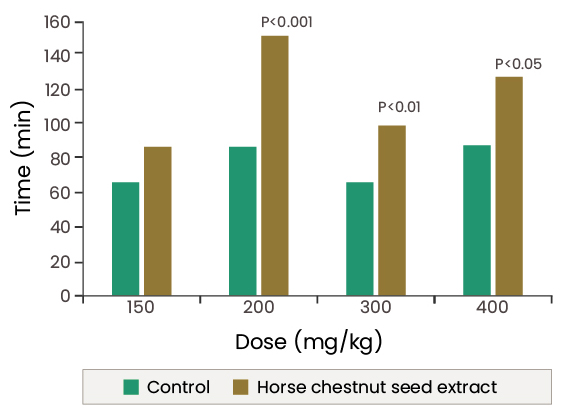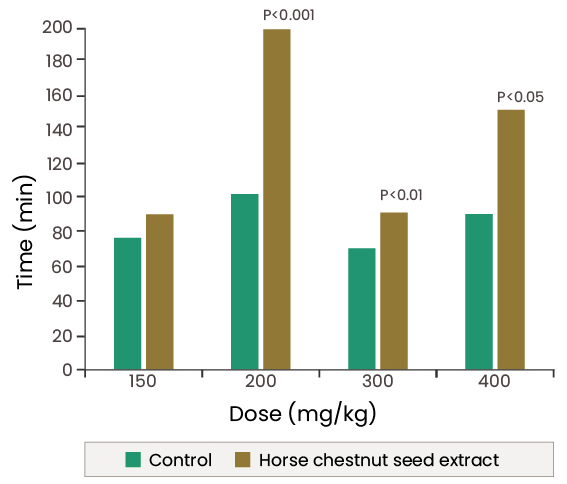Study 1
Horse chestnut seed hydroalcoholic extract was evaluated for its ability to induce contraction in the bovine mesenteric veins and arteries, and to asses the effect on the human platelet aggregation. It was observed that the extract dose-dependently contracted both veins and arteries, with the veins being the most sensitive. ADP-induced human platelet aggregation was significantly reduced by horse chestnut. Authors conclude that the horse chestnut induced contraction of veins and arteries may be mediated through 5-HT(2A) receptors.
Reference
Felixsson E, Persson IA, Eriksson AC, Persson K. Horse chestnut extract contracts bovine vessels and affects human platelet aggregation through 5-HT(2A) receptors: an in vitro study. Phytother Res. 2010;24(9):1297-1301.
Study 2
Guillaume and Padioleau demonstrated the efficacy of orally administered horse chestnut extract in protection against serotonin and histamine induced capillary hyperpermeability in rat skin. In the study, the degree of protection was measured by the time required for a dye to penetrate the walls. A dose-dependent protective effect was observed for both inflammatory mediators, with an 80% increase in dye appearance time was observed at a dose of 200 mg/kg of the extract (Fig. 2).


Figure 2. Effect of the extract on the capillary hyperpermeability in rat skin
Reference
Guillaume M, Padioleau F. Veinotonic effect, vascular protection, antiinflammatory and free radical scavenging properties of horse chestnut extract. Arzneimittelforschung. 1994;44(1):25-35.